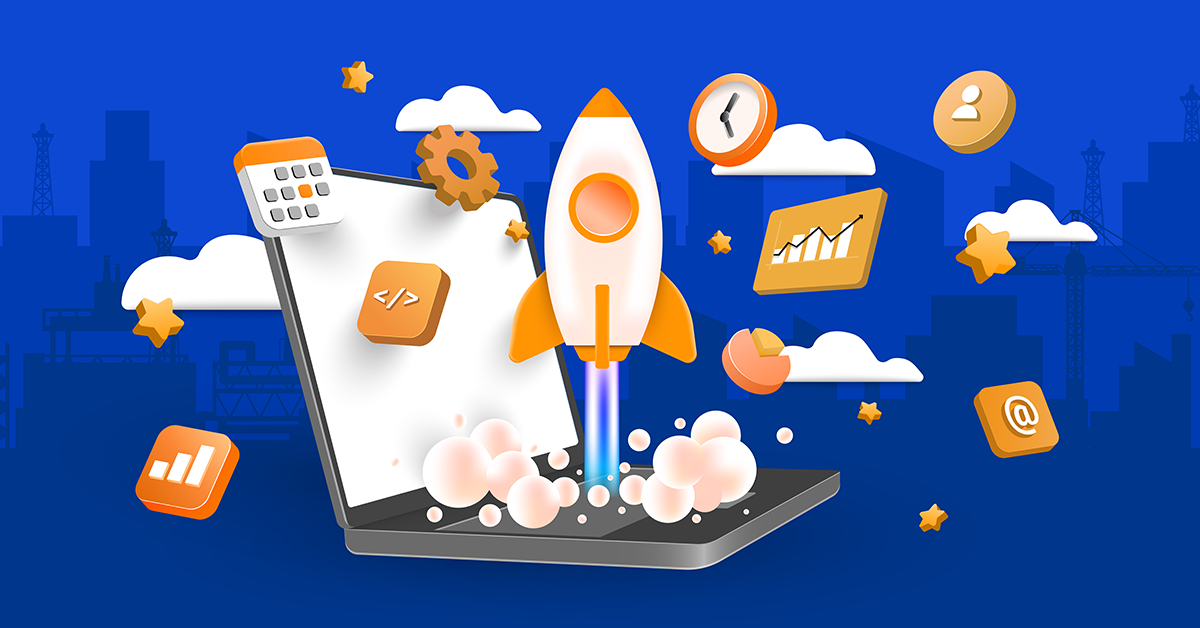If COVID-19 was a speed bump that no one expected to appear in the middle of the highway, marketing technology or ‘MarTech’ is the mechanic that can get you back on the road.
There’s no doubt that the pandemic caused massive disruptions across industries. Because of the health crisis, most companies had to reevaluate their go-to-market strategies. At the height of it all, people were stuck at home as more brick-and-mortar stores shut down.
Thankfully, digital marketing technologies found new ways to connect businesses and customers for better engagement. As the economy opens up anew, the country’s marketing technology landscape continues on an upward path towards more business opportunities.
How Did ‘MarTech’ Redefine Itself?
Before COVID-19, MarTech has already been making the lives of marketers easier. Companies enjoyed faster turnarounds and improved results from streamlining to scaling every aspect of their marketing activities.
In layman’s terms, MarTech involves software that assists digital marketing specialists in planning and drafting strategies for campaigns. These plans and strategies anchor on data that are collected and analyzed. What results are insights that can be monitored and measured for further improvement.
When the pandemic broke out, the first ones to suffer were traditional marketing programs laid out on the company table. The spotlight pivoted towards customer experience as companies struggled to generate leads online. Because of this, most businesses experienced a knee-jerk shift to keep abreast of the evolving market. At the center of it all was MarTech.
2020 became the banner year for significant changes in the country’s marketing technology landscape. Digital marketing technology rose to new heights with more SMEs considering its power and realizing that this new door has more potential than initially imagined.
Where Does MarTech Fit In Digital Marketing Transformation?
As the country is seeing unprecedented growth in the adoption of digital marketing technology across industries, some things will inevitably become obsolete. This fact is mainly because the advancement and impact of MarTech are changing how customers interact with businesses.
With how digital marketing technologies link themselves to others, including fintech, eCommerce, and the Internet of Things, global consumers are now embracing a new world. In one survey, 86 percent of Filipino businesses say that digital-first companies can vastly improve their customer experiences. Despite being a lower-income economy, the Philippines can stay on top of MarTech trends thanks to its partnerships with global networks.
However, companies need to consolidate every aspect of their operations into a singular digital transformation framework. Doing so will grant them access to sophisticated marketing tools via cloud-based programs, gather data securely, receive metrics and analytical reports, and allow them to track and monitor performance.
Unfortunately, only a few can strike gold with their digital marketing technology efforts at the moment. The country needs further development in such factors like resistance to change, silos, and the lack of tech know-how among marketers.
Why Be ‘Digital-First’ In The Current Marketing Technology Landscape?
If there’s one thing companies learned from how COVID-19 dealt blows to businesses, it’s that digital marketing technologies can be a fail-safe solution to any unexpected disruption. Think of it as a ‘touch move’ advantage in chess or a free ‘get out of jail’ card in a Monopoly game.
However, only 55 percent of local SMEs have started with their digital transformation journeys, and a high 60 percent of households still do not have access to the internet.
So why strive for being a digital-first company when the current potential reach is only at 40 percent?
Preparing now gives your business a good headstart for when the entire marketing technology landscape in the country goes fully digital. A year into the pandemic, customer-business relationships have transformed drastically, and the changes are here for the long haul. More local consumers have turned to online channels and are resorting to purchasing things they need online for its convenience.
Most of all, businesses are discovering how beneficial digital marketing technologies are in increasing leads and brand awareness, security, productivity, and higher profits.
What Are The Benefits And Challenges Of MarTech?
Most digital marketing technologies revolve around data to streamline routine processes via automation. In a nutshell, these tools give you more time for less work, especially if they align with all of your other workflows.
MarTech works with data to allow marketers to develop personalized and optimized content to increase brand visibility, customer loyalty, leads, and sales. It lets marketers segment their target markets according to their place within the marketing funnel to offer them what they are looking for more efficiently.
And that’s what today’s consumers are looking for: the bliss of being offered tailor-fit solutions that address their pain points. Being able to carry out an effective MarTech strategy will give your business stronger customer relationships and more data that can help improve their lifetime value to your business.
However, marketers should tread the MarTech path lightly as there can be some challenges along the way. Without experts by your side to help you navigate its complex world, you might end up elbowing for scraps.
Not generating quality data and not knowing how to interpret them seems to be a common mistake in today’s marketing technology landscape. The good thing is that elite digital marketing partners are well-versed in such technologies. The best solution in overcoming MarTech challenges is to hire a partner who can integrate data into a centralized platform so you can easily derive helpful insights.
What MarTech Categories Are Out There?
The world of MarTech is vast and complex. Tools categorize themselves into eight functions that can work together for a powerhouse marketing platform for your business:
1. Content Marketing Tools
These types of software cover an array of marketing facets concerning your content management. They may include efforts for your SEO, A/B testing of your landing pages or ad sets, lead magnets, and assets, among others.
2. Rich Media Tools
These tools also fall under the content management spectrum but are more advanced. Rich media tools center more on your graphic assets, including design, video, audio, and similar formats.
3. Social Media Tools
Social media is definitely one of the prime go-to channels for every marketer. With millions of users across platforms, tools that connect your business to the right audiences allow you to listen socially and derive more insights for better campaigns.
4. Marketing Automation Platforms & Tools
These tools usually involve installing automated functions for your email and mobile marketing. It streamlines manual processes that may include sorting out your buyer personas to help you enhance user experiences.
5. Advertising Platforms & Tools
When you decide to take your digital marketing technology a step further towards paid ads, these tools are what you’ll need. They deal with analytics, performance, and customer data so you can streamline your campaign efforts more efficiently. These may include tools for your search engine marketing, social media ads, and more programmed tactics like media buying and selling, among others.
6. Sales Enablement Tools
This refers to platforms or systems that make the entire sales content lifecycle visible. With the use of search, scoring, and syncing, tools for sales enablement are able to concretize the cycle of marketing, sales, and customer management. These tools also allow teams to track the performance of their content, from pitching down to publication.
7. Data and Analytics Platforms
As the name implies, these platforms mainly deal with the relevant data and analytics to generate insights. You can use customer and data management platforms and web and predictive analytics for this function.
8. Conversion Tools
Sales-centric tools that automate customer management processes are essential in your MarTech efforts. They improve your customer relationships and help you create tailor-fit content to increase your leads and sales.
How Can Digital Marketing Technology Boost My Business?
Knowing the basics of digital marketing technology and the current marketing technology landscape in the country jockeys you into a more advantageous position when everything in business becomes 100 percent online.
When shifting to an integrated digital infrastructure, prioritizing how you sell your products and services to the right customers can result in more long-term benefits. Like how most companies view MarTech as the key to business growth today, so should you start brushing up on how you can revolutionize the way you do business in today’s digital age.





